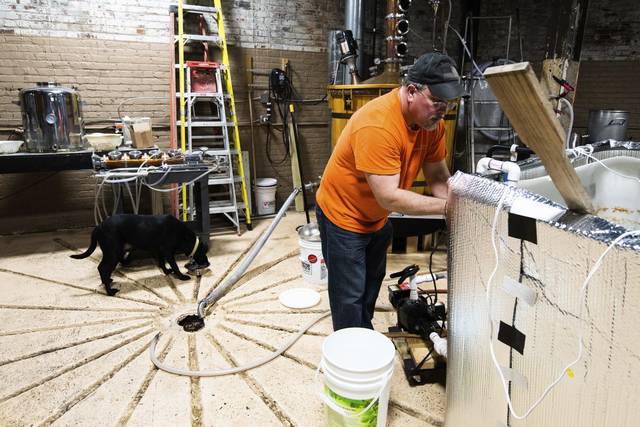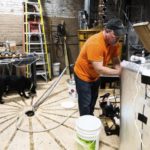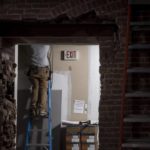Local craft distillers and brewers are toasting the renewal of a federal tax relief bill that they say will help their small businesses continue to grow.
But some worry that celebration could be short-lived.
The Craft Beverage Modernization and Tax Reform Act was first passed in 2017. It cut the federal excise tax, which businesses pay every other week, in an effort to support small, craft producers of beer, wine and spirits.
The act was scheduled to expire at the end of 2019, leaving small, local breweries and distilleries wondering whether they might see their taxes increase in the new year. Congress managed to get the tax cut extended through the end of 2020, but local business owners say this uncertainty makes it difficult to plan for the future.
“Because we are a small craft distillery, future plans that could possibly expand the business are probably altered because we can’t look further than one year down the road,” said Dave Baustert, owner and distiller at Crooked Creek Distillery in West Newton. “I think, ultimately, we’re still moving forward with some expansion plans, but they might be more conservative.”
He also hopes to get his products into retail outlets in 2020, but might have to slow down expansion if excise taxes return to pre-2017 levels.
“The craft distillery industry is really coming into its own, I believe, right now,” Baustert said. “There are a lot of really good choices, and a lot of really good products right now. And I think if the excise tax was to go back to where it was, I think it would greatly impact the entire industry.”
The Craft Beverage Modernization and Tax Reform Act reduced the excise tax rate on distilled spirits from $13.50 to $2.70 for the first 100,000 proof gallons per year, with smaller cuts to taxes on beer and wine.
“The tax relief, it’s well into the six figures for us,” said Meredith Meyer Grelli, co-owner at Wigle Distillery and Threadbare Cider & Mead in Pittsburgh. “Every dollar goes back into the business. And I think every small-business owner in the world can relate to that.”
Pittsburgh’s Wigle Whiskey Distillery produces a variety of small-batch whiskeys at its Strip District distillery. The 2017 tax relief allowed the business to immediately hire three distillers, Grelli said.
“It takes a year to train a new distiller, for them to be fully independent, safely operating a still,” she said. “So for every new distiller we bring on, we’re investing a year into them. If this tax relief went away and our taxes did go up 400%, we couldn’t grow our labor force in the same way. And we’d have to be much more careful about how we hired, because it is such a risk.”
Since Wigle started operations in 2011, they’ve steadily grown the number of batches they produce per week to six. The distillery recently started construction to expand the Strip District location.
Craft distillers across the country welcomed the extension, but “it does not cause any business certainty for entities that are trying to plan for the years ahead,” said Margie Lehrman, CEO of the American Craft Spirits Association.
A survey of the organization’s members showed that most would have to cut jobs or freeze employment, cut production, slow expansion and increase prices if excise tax rates reverted to pre-2017 levels, Lehrman said.
Adam Harris, deputy executive director of Brewers of PA, the trade association representing brewers in Pennsylvania, said dropping the tax rate gave brewers confidence to invest in equipment.
“And obviously that equipment is quite expensive,” Harris said.
The excise tax relief slashes between $10,000 and $20,000 off the bottom line for East End Brewing, said Scott Smith, who founded the Pittsburgh brewery about 15 years ago. These days, that savings helps him hire more staff to meet growing demands and source local ingredients from small suppliers that can be more expensive.
But for new breweries in their first few years of operation, “that is a make-or-break kind of number,” he said. “You might survive that year or you might not.”















